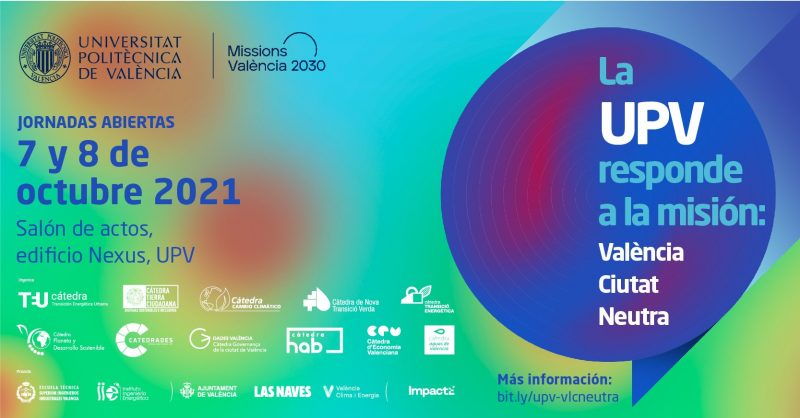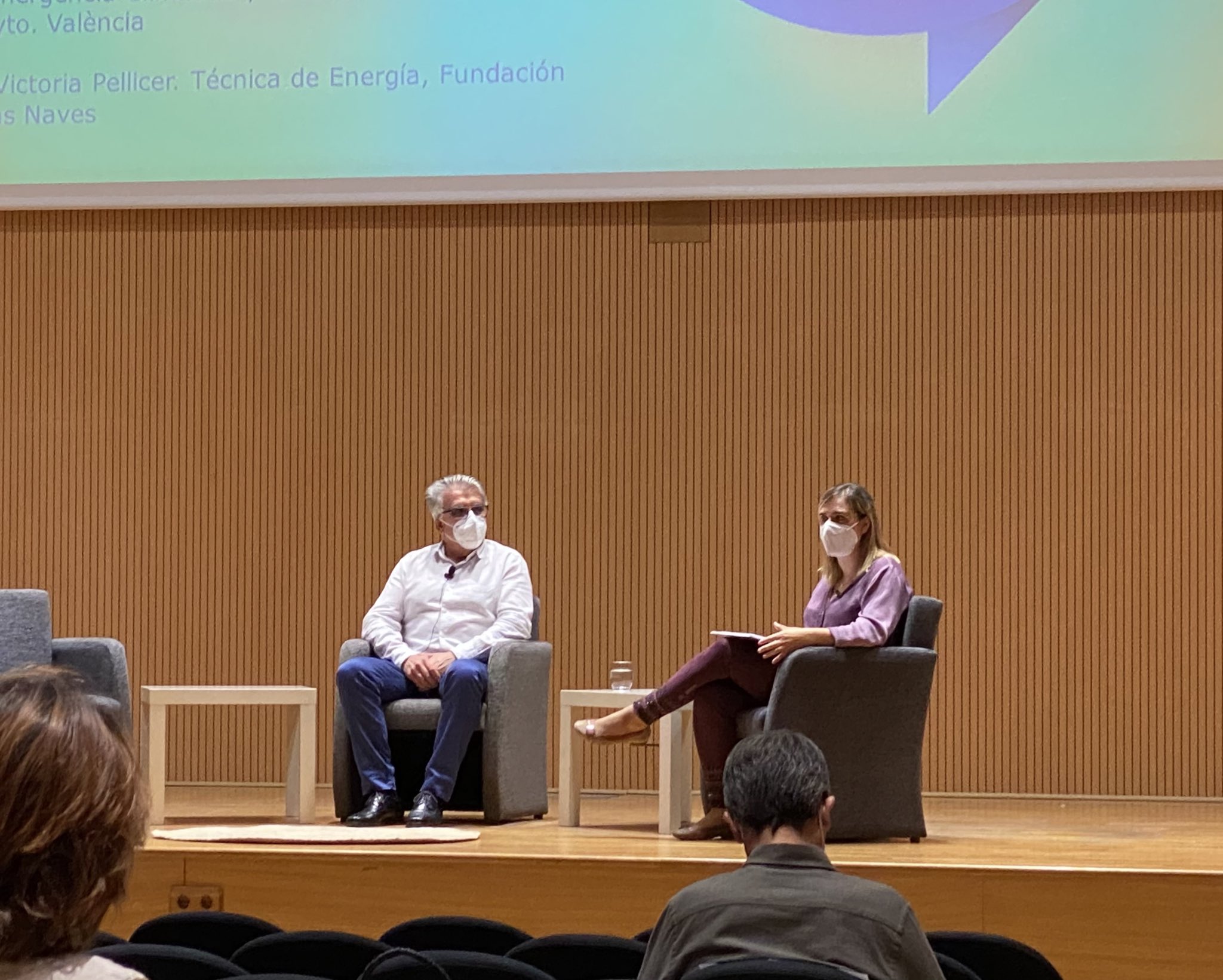The City Council and the Polytechnic University of Valencia join forces in order to promote the València 2030 Neutral City plan

“The University can offer concrete knowledge, working methods, a key educational space and the college campi as references to make a climate neutral city out of València”. This is what the Mayor of València, Joan Ribó, stated during the official opening of the event held by the Polytechnic University of Valencia (UPV) in order to answer the call from the City Council to all local public, private and social partners “so that we may jointly reach one of the mayor urban challenges for the near future: city decarbonisation”. “With that in mind, the City Council counts on the Valencia 2030 Urban Strategy, including initiatives to promote a healthier, more sustainable, shared, prosperous, creative and Mediterranean city” as the Mayor recalled when acknowledging the work of the UPV, “one of the firsts institutions that through this event demonstrates its will to make a concrete contribution to the ‘Missions València 2030’ program, the seed of a great compact for decarbonisation in València”.
Joan Ribó, Mayor of València, together with Deputy Mayor and Urban Ecology Councilman, Sergi Campillo, and Climate Emergency and Energy Transition Councilman, Alejandro Ramón, welcomed this event that took place in the Nexus building auditorium at the Camino de Vera campus, within the framework of the Energy Transition Chair at the UPV. In his speech, the Mayor talked about the role of cities in the way towards decarbonisation. The reason is that, for instance, at a global level they concentrate over 65% of the overall energy consumption and generate over 70% of CO₂ emissions. He also explained that “in these urban areas, as drivers for the rest of the territory, are concentrated all the mayor challenges related to climate change, mobility, energy consumption, waste generation or air pollution”.
When stressing out the “importance of cities” and the fact that they are “big spaces of opportunity where solutions can be put in place”, the Mayor referred to the established international guidelines for environmental transition in cities towards spaces where people can live better. He also echoed the aims for the Valencia 2030 Urban Strategy that “put the climate issue at the center in order to rethink the city”.
“In general terms, the challenge is not only about cities becoming climate neutral, but also about doing it as soon as possible, according to the last Intergovernmental Panel on Climate Change (IPCC) report”. Joan Ribó proved himself as an “advocate for the European innovation policy as an engine for “Missions València 2030”, where València is included in a project seeking to promote innovation, experimentation and learning spaces, with the goal of accelerating climate neutrality in the target neighborhoods of integrated actions in the fields of energy, mobility, land restoration and circular economy, among others”.
“València wishes to become one of the 100 launchpad cities against climate change. We benefit from a wide political and social consensus, and we are working in a full dialogue process with citizens, companies, other public bodies, civil society and academia to include this mission in the City Strategic Framework”. This is what Joan Ribó declared when he stated that “the mission of becoming a climate neutral city should specially be the seed for a great compact in order to achieve the decarbonisation of our city”.
University-City pairing
In this sense, Mayor Joan Ribó thanked the educational community gathered at the event today “for supporting the City Council, for their cooperation, for sharing this project and this inescapable challenge”. He added: “I am convinced that the conclusions reach by the end of the event and the workshops will be of the most interest, and will bring some key ideas on how to move forward”. Joan Ribó also invited the audience “to think about how to establish joint coordination and working mechanisms to make a true driver for transformation out of the university-city pairing that will help us advance in the city ecology transition and in climate neutrality”.
He concluded: “The University and the city have to walk this path hand in hand, starting from positive approaches. If we are able to anticipate and act on time, decarbonised and climate adapted cities will become a better place to live”.
In the same vein, the Climate Emergency and Energy Transition Councilman, Alejandro Ramón, declared that “the city should become the launch pad to address and bring a response to climate change, one of the mayor challenges of humankind, and the university-city pairing is and will be one of the best tools at our reach to succeed”.
The Dean of UPV, José Capilla, and the Director of the Energy Transition Chair, Carla Montagut, were also at the opening of the event. The Dean talked about the years of hard work at the UPV to fight climate change, and he guaranteed that “this body has the duty to imbue students with this issue, as well as to value knowledge to solve problems and face challenges”.


